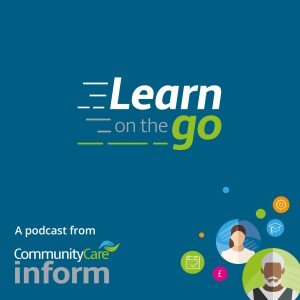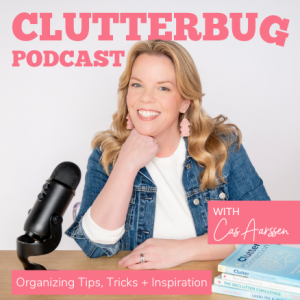

Learn on the go: the Community Care podcast
https://www.spreaker.com/show/3332204/episodes/feedEpisode List

Season 2 Episode 1: parental conflict
This episode focuses on working with ‘parental conflict’ (this is the phrase we tend to hear, though we discuss that there may be more helpful language we can use). Terminology aside, it’s clear that professional involvement in the very personal dynamics of a couple’s relationship and how it may be impacting their child or children can be extremely challenging and uncomfortable for both the parents and practitioners.So we wanted to bring you some practical advice and guidance on doing this type of work with families. Our guest sharing some of her experience and expertise Jude Gordon. Jude has been a practitioner and service manager in local authority and voluntary sector settings, working with children, young people and families. Until earlier this year, she led the Reducing Parental Conflict programme at Relate. This included different forms of relationship support for parents and carers; training for professionals who work with families; and developing AI tools to help couples and co-parents communicate more effectively an understand how their children may be feeling Jude is now a project manager within the child poverty team at the North East Combined Authority, which covers seven local authority areas.The discussion includes anonymised examples of working with a family, supporting families with the systemic and practical challenges that can contribute to conflict, working with separated couples and co-parents, useful resources and self-care for practitioners. Jude emphasises relational, authentic practice, and keeping in mind cultural and family structure differences.Links to resources Jude mentions:Relate's 'Sounding board' bot that can help parents (partners or co-parents) who are having disagreements to write texts and emails or prepare for conversations'In the middle' bot (also from Relate) helps parents understand how their child/ren of different ages may understand their parents' relationship and how they may feel.Tool to find local servicesThe Reducing Parental Conflict online community on Knowledge Hub (requires initial free registration with Knowledge Hub, a digital platform for public service professionals)One Plus One: offers free and paid for online resources, and training packagesRace Equality Foundation parental conflict toolkitRelated resources on CC InformAll our podcast episodesBenefits A-Z (includes information about eligibility and how to apply for all major social security benefit in the UK)Housing knowledge and practice hub (includes information on rights in relation to housing conditions and tenancy)Cost of living: sources of helpGuide to shame and recognising how it may present in children (and adults) in the child protection systemDomestic abuse knowledge and practice hub

Season 1 Episode 6: Authentic leadership skills - feedback, trust and psychological safety
This episode focuses on leadership skills and style - in particular the crucial role of feedback which can sometimes be seen as mainly about staff performance and a less comfortable or even fear-inducing aspect of any kind of leadership or supervisory role.Our guests today are keen to discuss and demonstrate how feedback is a much broader part of developing your own leadership style and something that can help build trust, transparency and supportive culture in your team or particular context.They share examples from their own experience to help pracitioners, supervisors and managers at all stages think about developing their own leadership.This epsisode is part of our leadership knowledge and practice hub on CC Inform Children which has been produced with Frontline, that charity that is perhaps most known for its fast-track local-authority based training programme for new child protection social workers, but also runs leadership development programmes for managers and those aspiring to be managers in children’s services.The speakers are: Anjuli Obaro, curriculum lead at FrontlineDelin Dixon, independent social worker, experienced foster carer, consultant and trainerYinka Olaniran, service manager for a local authority independent reviewing and child protection conference service, and facilitatorFurther links:Radical Candor In 6 Minutes With Kim Scott (YouTube video)Radical Candor (book)CC Inform leadership knowledge and practice hubCC Inform Management knowledge and practice hubCC Inform Supervision knowledge and practice hub

Season 1 Episode 5: Addressing the risks of exploitation for children with SEND
Season 1, episode 5This episode is about how to safeguard children with special educational needs and disabilities from sexual exploitation. We’ll be discussing recent research and findings related to modern slavery and the heightened risk that children with SEND are at across England and Wales, as well as the importance of early identification and working with the whole family.Our expert guest is Sarah Goff – associate researcher at Manchester Metropolitan university.Questions are asked by Gillian MacFarlane, content editor, Community Care Inform Childrens.Community Care Inform subscribers can access additional resources and a written transcript of the podcast.Subscribe to the Learn on the go series to stay up-to-date with new episodes. Look out for the next episode in Season 1, which will be released at the end of June. Meanwhile, you can join Community Care's Social Work Community for careers guidance, private discussion rooms with fellow social workers and even more podcast episodes. ResourcesResearch study - Internal trafficking of children with SEND Research stufy - Early identification of exploitation of children with SEND

Season 1 Episode 4: Dealing with change and loss after becoming disabled as an adult
Season 1, episode 4This episode focuses on dealing with change and loss as a result of becoming physically disabled as an adult, and how practitioners can support individuals who are coming to terms with the impact of disability on their body and their lives.The guest is Rebecca Regler, a lived experience worker. Rebecca qualified as a social worker 10 years ago but didn’t get the chance to put her training into practice because soon after graduating she was diagnosed with the connective tissue disorder Ehlers Danlos syndrome, which left her unable to work.Rebecca discusses the emotional impact that can occur from unexpectedly becoming disabled as an adult; how it can affect mental health; the loss of identity, including professional identity and how someone perceives themselves within relationships; the financial implications; and how social care professionals can provide support and advocacy to help adults at such a difficult time.Questions are asked by Natalie Valios, senior content editor, Community Care Inform Adults.Community Care Inform subscribers can access additional resources and a written transcript of the podcast: ADD LINK HERESubscribe to the Learn on the go series to stay up-to-date with new episodes. Look out for the next episode in Season 1, which will be released at the end of May. Meanwhile, you can join Community Care's Social Work Community for careers guidance, private discussion rooms with fellow social workers and even more podcast episodes.

Season 1 Episode 3: Perinatal mental health
This episode discusses perinatal mental health. Approximately one in five women in the UK experience mental health issues during pregnancy and up to one year after birth, and if left untreated they can lead to long-lasting effects on mothers, infants and the wider family.In recent years, significant funding has been invested in specialist perinatal mental health services but there are disparities in access to these services and experiences with health and social care professionals.This episode explores the role of social workers in perinatal mental health, the risk factors of developing perinatal mental illness and the red flags to look out for that may indicate a new or expectant mother is struggling with perinatal mental health issues.The guests are Tara Mitchell, a registered social worker and operations manager of the perinatal mental health service at Leeds and York Partnership NHS Foundation Trust, and Wan Abdullah, a mother with lived experience of perinatal mental illness.Asking the questions is Gemma Balmford, assistant content editor, Community Care Inform Adults.Subscribe to the Learn on the go series to stay up-to-date with new episodes. Look out for the next episode in Season 1, which will be released at the end of April. LinksRoyal College of PsychiatristsMBRRACE-UKTavistock and Portman The perinatal mental health elearning programme Maternal Mental Health Alliance
You may also like
Create Your Podcast In Minutes
- Full-featured podcast site
- Unlimited storage and bandwidth
- Comprehensive podcast stats
- Distribute to Apple Podcasts, Spotify, and more
- Make money with your podcast












